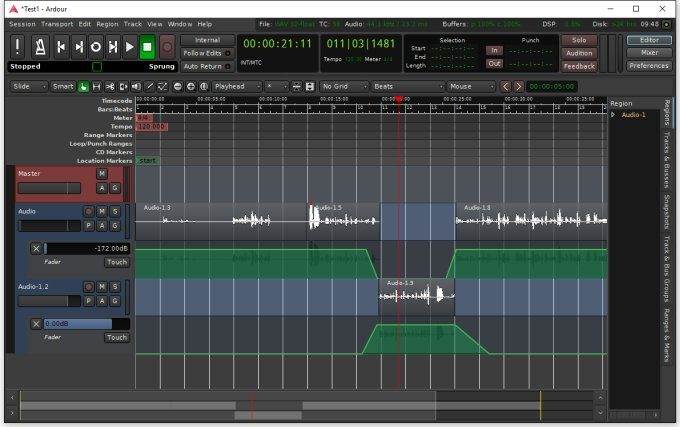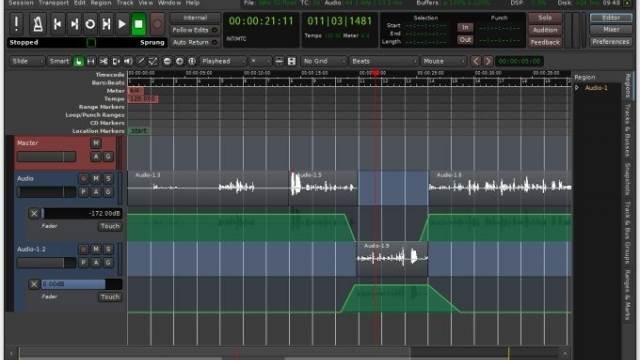Ardour is a free and open source digital audio workstation which can be used to record and mix music, podcasts, or just about anything else. The software has been available for Linux and Mac for over a decade.
Now it’s also available for Windows.
Ardour 5.0 has just been released, and one of the most notable updates is support for Microsoft Windows.


Another major change in the latest version is support for a single-window user interface, which allows you to flip between the editor, mixer, and preferences views in tabs. If you’d prefer, you can still view everything at once by working in a multi-window mode, but the update could make Ardour easier to use if you have a single monitor and limited screen space.
There are a number of other updates, including new themes, an option to normalize your audio by loudness rather than peak volumes, and more.
Note that while Ardour is free software, that freedom refers to ideology rather than cost… sort of.
Anybody can download, compile, or modify the source code. And if you’re using a GNU/Linux-based operating system like Ubuntu, Debian, or Fedora, odds are that the simplest way to install Ardour is to download the latest version available from your operating system’s repositories. That version will be pre-compiled and free of charge.
But if you want to install a pre-built version of Ardour downloaded from the developers’ website, you’re asked to pay. There are multiple payment options: For $44 or less you can get the current version and all the updates until version 6.0. For $45 or more you get all of those updates, plus access to nightly builds. Or you can pay for a monthly subscription.
There’s also a free demo version with full functionality… but it will occasionally go silent after 10 minutes. That makes it easy to try out Ardour without paying, but if you actually want to do any serious work with the program you’ll probably want to pony up some cash… or build the program from source if you have the technical know-how and don’t feel like paying.
I took Ardour 5.0 for Windows for a short spin this morning, and while it doesn’t feel quite as intuitive as Reaper (the program I’ve been using to edit the LPX Show podcast), I had no problem starting a project, recording some sound, and making some simple edits. It’s far more powerful than Audacity, and feels a little less confusing (to me, at least), than Pro Tools.
Overall, I’m very excited to see that there’s another affordable (and free & open source!) option available for audio producers using Windows. Oh yeah, I guess it’s nice to see that the Linux and Mac version is getting a major update too.
–


![[Interview] Auto Open Door Brings Everyday Convenience to](https://loginby.com/itnews/wp-content/uploads/2025/08/1755781411_Interview-Auto-Open-Door-Brings-Everyday-Convenience-to-238x178.jpg)




